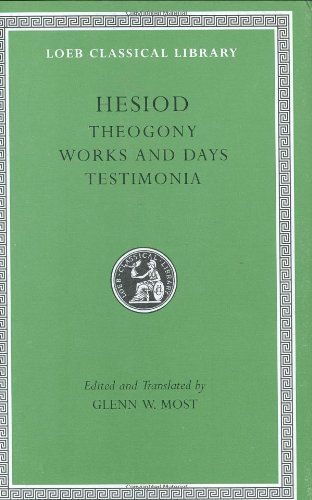
Hesiod: Theogony, Works and days, Testimonia
Hesiod describes himself as a Boeotian shepherd who heard the Muses call upon him to sing about the gods. His exact dates are unknown, but he has often been considered a younger contemporary of Homer. In Theogony Hesiod charts the history of the divine world, narrating the origin of the universe and the rise of the gods, from first beginnings to the triumph of Zeus, and reporting on the progeny of Zeus and of goddesses in union with mortal men. In Works and Days Hesiod shifts his attention to the world of men, delivering moral precepts and practical advice regarding agriculture, navigation, and many other matters; along the way he gives us the myths of Pandora and of the Golden, Silver, and other Races of Men. Also included are The Shield and extant fragments of other poems, including the Catalogue of Women, that were attributed to Hesiod in antiquity. None of these is now thought to be by Hesiod himself, but all have considerable literary and historical interest. The Catalogue of Women is a systematic presentation in five books of a large number of Greek legendary heroes and episodes, organized according to the genealogy of the heroes’ mortal mothers. The Shield provides a Hesiodic counterpoint to the shield of Achilles in the Iliad, with Heracles as the protagonist. The volume concludes with a comprehensive index to the complete edition.
Reviews
Julia A.@brizna